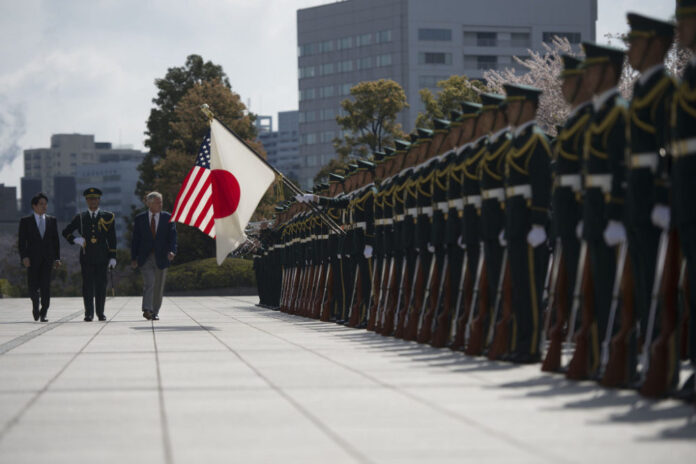Author: Simon Schwenke
Affiliation: Graduate School of East Asian Studies, Freie University, Germany
Organization/Publisher: Australian Journal of International Affairs
Date/Place: June 22, 2020/ Canberra, Australia
Type of Literature: Journal Article
Number of Pages: 18
Link:https://www.tandfonline.com/doi/full/10.1080/10357718.2020.1781788?scroll=top&needAccess=true
Keywords: Japan, Civil–Military Relations, Civilian Control, National Security, Military Influence, JSDF
Brief:
In foreign policy making, the decision-making elite are influenced by internal dynamics while formulating the state’s orientation in the international arena. Similarly, domestic political culture is also affected by the external-evolving security environment of a state. Civil-Military Relations in Japan remained exceptional as compared to South Asia, the Middle East, North Africa, and Latin America throughout the Cold War period (1945-89). The Japan Self Defense Forces (JSDF) were established in 1954, and are controlled by a civilian body Japan Defense Agency (JDA). The JDA has never had a complete authority over the routine functions of the JSDF, but in legal terms it had a relation of equity on Japanese military. Additionally, Japan has remained under the extended nuclear deterrence of the US since the Cold War scaled up to nuclear threats after 1949. But the situation has been changed by the disintegration of the Soviet Union in 1989 and China’s emergence as a new rival. This article focuses on the transformation in Japanese civil-military relations during 2009-12 in the context of this new regional security environment. According to Peter Gourevitch, the internal political environment of a State is led by the developments occurring outside the domain of the respective state. As a result, JSDF now has more institutional influence in the national security arena, which influence extends beyond the ministry of defense, and in some instances extends to the national security council. The involvement of the Japanese military in offshore operations, in alliance with the US and Australia, have enabled its capacities to take charge of foreign policy making. According to this study, Japan’s alliance with the US is also considered as a source of inspiration to again put civilians in power over national security formulation, but it is still not clear. The article concludes that the status quo has welcomed the new chapter in Japanese civil-military relations, but the question remains whether Japan’s military will exceed its role in budgetary issues of state or not.
By: Muhammad Taimoor Bin Tanveer, CIGA Research Associate




